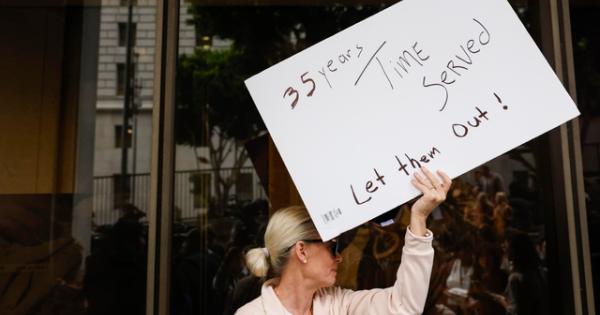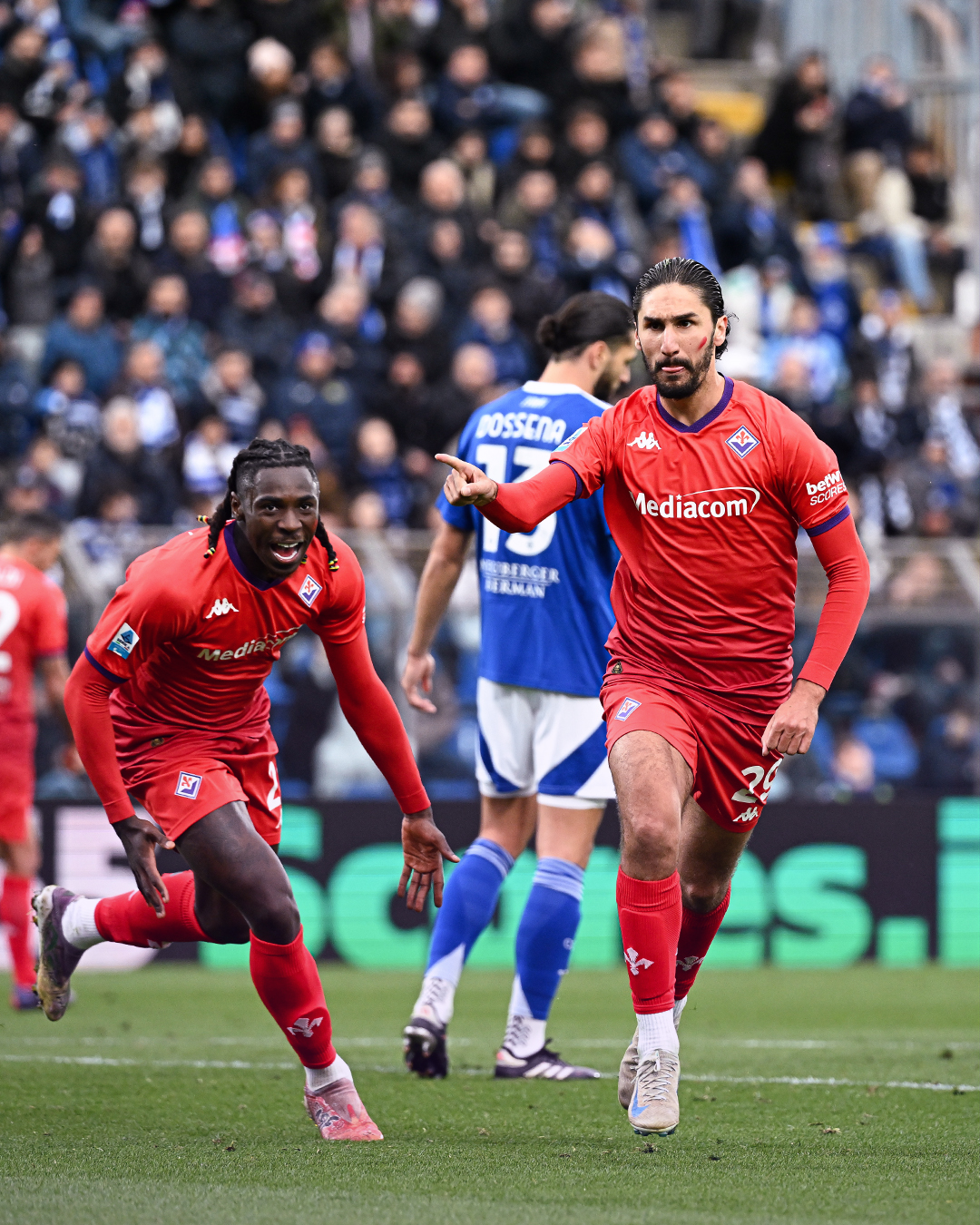(ANSA) – WASHINGTON, NOV 24 – The brothers Lyle and Erik Menendez, who are serving life sentences for the murder of their parents in 1989, will appear in court in the next few hours for a hearing that could be the first step towards freedom. The Los Angeles prosecutor’s office asked a judge to open probation in light of mitigating circumstances surrounding the sexual abuse inflicted by his father on the two boys he cared for since they were little. At the center of a popular Netflix miniseries ‘Monsters’ starring Javier Bardem, Chloë Sevigny, Cooper Koch and Nicholas Alexander Chavez, the Menendezes have already served 35 years in prison. Prosecutor George Gascón’s office recommended that the two men – now aged 54 and 56 – receive a new 50-year sentence with discounted sentences but could be released immediately thanks to a California law for committing the crimes when they were younger 26 years old. However, the road to freedom will not be short or simple: if the judge validates Gascón’s request today, Lyle and Erik will have to appear before the parole commission, where the ‘no’ from their uncle Milton Andersen (the brother today mother’s 90s). If the board still gives the green light, the final say will be up to California governor Gavin Newsom, who will have 150 days to express his opinion. The brothers were 21 and 18 years old when they shot their parents to death in the house on Elm Drive, Beverly Hills. The first trial ended in 1994 with no results and only in 1996, at the end of a second proceeding behind closed doors, the boys were sentenced to life imprisonment without any time served after being described as heartless murderers who had killed for get your hands on family assets. The review of the sentence was initiated last year by the brothers’ lawyers on the basis of new evidence and the good behavior of the prisoners. The declaration of a former member of the Puerto Rican boy band Menudo, Roy Rosselló, had come to light, according to which the father of the two boys (manager of the music label RCA) had raped him in the 1980s, and a letter from December 1988 in which Erik had written to a cousin alluding to the violence. (HANDLE).
© All rights reserved
!function(f,b,e,v,n,t,s)
{if(f.fbq)return;n=f.fbq=function(){n.callMethod?
n.callMethod.apply(n,arguments):n.queue.push(arguments)};
if(!f._fbq)f._fbq=n;n.push=n;n.loaded=!0;n.version=’2.0′;
n.queue=[];t=b.createElement(e);t.async=!0;
t.src=v;s=b.getElementsByTagName(e)[0];
s.parentNode.insertBefore(t,s)}(window, document,’script’,
‘https://connect.facebook.net/en_US/fbevents.js’);
fbq(‘init’, ‘471476730149687’);
fbq(‘track’, ‘PageView’);
#hearing #Menendez #step #freedom
–
**How does the emergence of new evidence regarding the Menendez brothers’ claims of abuse impact our understanding of the original trial and verdict? Should the legal system be obligated to re-examine cases in light of such new information, even decades later?**
## The Menendez Brothers: A Possible Path to Freedom?
**(Interview Introduction)**
Welcome to World Today News. Today, we delve into a complex and controversial case that has captivated the public conscience for decades: the Menendez brothers and their potential release from prison. Joining us today are two experts in criminal justice and psychology to provide their insights. We have Dr. Sarah Jones, a renowned forensic psychologist, and Mr. David Miller, a former prosecutor specializing in high-profile murder cases.
**Section 1: The Crime and its Aftermath**
**(Host):** Dr. Jones, the Menendez brothers’ case has been the subject of much scrutiny and debate. For our viewers who may not be familiar with the story, could you provide a brief overview of the crime and its immediate aftermath?
**(Dr. Jones):** Certainly. In 1989, Lyle and Erik Menendez, then aged 21 and 18, shot and killed their parents in their Beverly Hills home. The case became a media sensation, fueled by accusations of greed and entitlement. The first trial ended in a hung jury, but in a second trial, they were convicted of first-degree murder and sentenced to life imprisonment without parole.
**(Host) :** Mr. Miller, from a legal standpoint, what were the key factors that ultimately led to the brothers’ conviction?
**(Mr. Miller):** The prosecution built a strong case based on the gruesome nature of the crime and the brothers’ seemingly calculated actions. While they claimed they acted in self-defense due to years of abuse, the jury ultimately didn’t find this defense credible.
**Section 2: New Evidence and the Path to Justice**
**(Host):** Fast forward to today, and the Menendez brothers are now seeking release. Dr. Jones, what new information has come to light that could potentially change the brothers’ fate?
**(Dr. Jones):** A key element is the emergence of new evidence indicating years of sexual abuse inflicted by their father. Testimonies from individuals, including a former member of the boy band Menudo, have corroborated Erik’s claim of abuse.
**(Host):** Mr. Miller, how significant is this new evidence in the context of a potential re-sentencing?
**(Mr. Miller):** This new evidence is undoubtedly significant, especially given the current legal climate and the increased focus on considering the impact of trauma and abuse in sentencing. However, the burden of proof remains high, and the prosecution will likely challenge its accuracy and relevance.
**Section 3: Ethical Dilemmas and Public Perception**
**(Host):** Dr. Jones, If the brothers are ultimately granted release, what psychological considerations should be taken into account?
**(Dr. Jones):** Re-entry into society after three decades of incarceration would be incredibly challenging for anyone, let alone individuals who have experienced such trauma. They would need extensive psychological support and a structured reintegration plan to navigate the complexities of modern life.
**(Host):** Mr. Miller, how does the court balance the interests of justice with public perception in a case as high profile as this?
**(Mr. Miller):** It’s a delicate balancing act. The court has a duty to apply the law fairly and impartially, regardless of public opinion. However, public perception can exert significant pressure, and judges must be mindful of maintaining public trust in the justice system.
**Section 4: Looking Ahead – Justice Served or Miscarried?**
**(Host) :** Mr. Miller, do you think the Menendez brothers deserve a second chance, and if so, under what conditions?
**(Mr. Miller):** This is a deeply complex question with no easy answers. I believe every case, regardless of its notoriety, deserves a thorough and impartial review. Ultimately, the judge must weigh the gravity of the crime, the evidence presented, and the potential for rehabilitation when making their decision.
**(Host):** Dr. Jones, final thoughts. What message does this case send about our justice system and its ability to adapt to new information and evolving societal values?
**(Dr. Jones):** This case highlights the ongoing evolution of our understanding of trauma, abuse, and their profound impact on individuals and their choices. It’s a reminder that the pursuit of justice is a continual process, requiring introspection, courage to revisit past decisions, and a commitment to seeking truth and fairness.
**(Host):** Thank you both for your insightful perspectives and for joining us today. This case is far from over, and we will continue to follow its developments closely.


